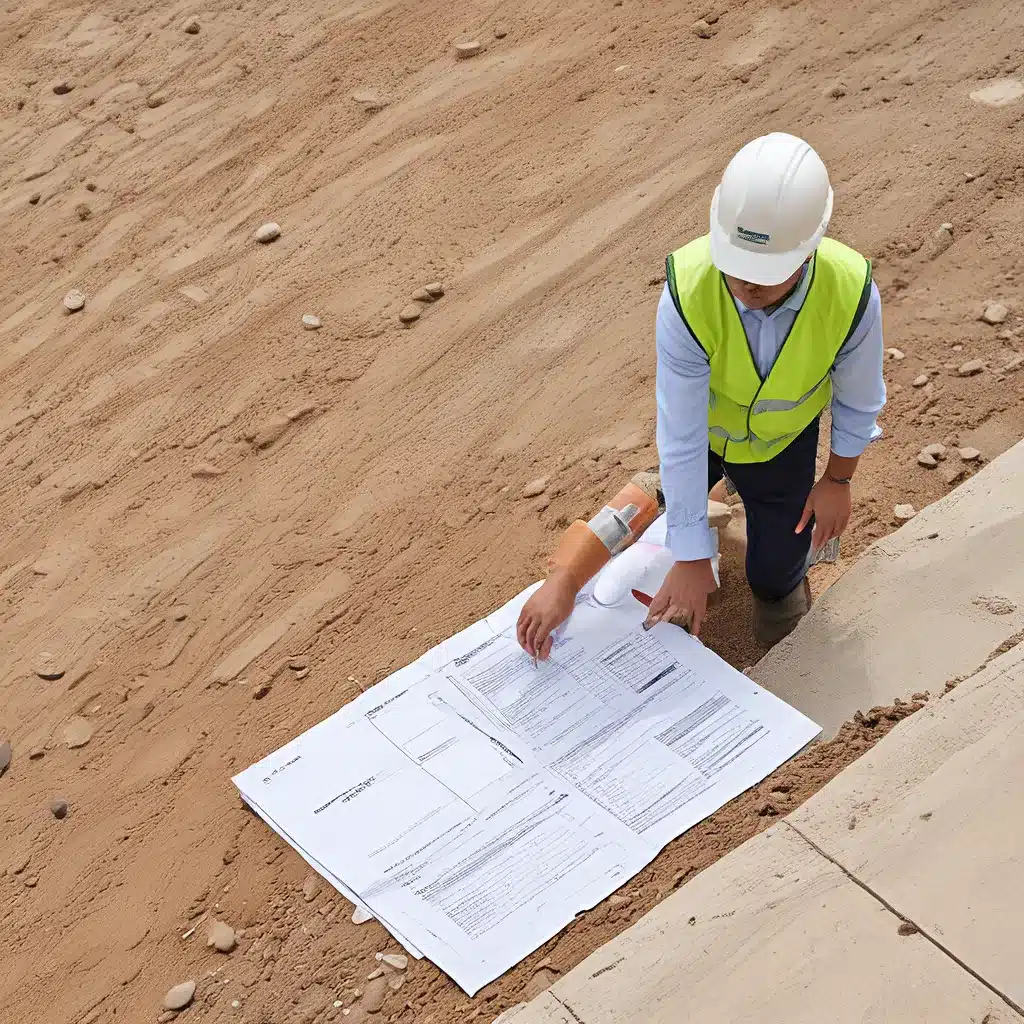
Predicting the Unpredictable: Navigating the Shifting Landscape of Construction Project Management
Ah, the world of general contracting – where the only constant is change. Just when you think you’ve got it all figured out, the ground shifts beneath your feet, and you’re left scrambling to adapt. But fear not, my fellow construction aficionados, for the future of project management in our industry is shaping up to be an exciting, if not slightly dizzying, adventure.
Embracing the Digital Revolution
In the not-so-distant past, construction project management was a largely analog affair, with clipboards, spreadsheets, and the occasional carrier pigeon as the tools of the trade. But those days are quickly fading into the rearview mirror, as the industry undergoes a digital transformation that’s nothing short of a revolution.
According to Autodesk, the construction industry is rapidly adopting new technologies, from Building Information Modeling (BIM) to drones and augmented reality. These digital tools are revolutionizing the way we plan, execute, and monitor our projects, allowing for greater efficiency, collaboration, and real-time data-driven decision-making.
But the digital revolution isn’t just about the shiny new gadgets. It’s about fundamentally changing the way we approach project management. As the Bureau of Labor Statistics notes, construction managers will need to become “proficient in using computer software for project management, scheduling, and cost estimation” to stay ahead of the curve.
Navigating the Challenges of COVID-19 and Beyond
Of course, no discussion of the future of construction project management would be complete without addressing the elephant in the room – the COVID-19 pandemic. As LinkedIn reports, the construction industry has faced significant disruptions, from supply chain issues to project delays and even business closures.
But in the face of adversity, the true innovation shines through. Construction firms that have embraced digital tools and agile project management strategies have been better equipped to navigate the challenges of the pandemic. From virtual site inspections to remote collaboration platforms, these innovative approaches have helped keep projects on track and maintain productivity, even in the face of lockdowns and social distancing measures.
And the lessons learned during the pandemic may very well shape the future of construction project management. As we rebuild from the economic challenges of the past year, LinkedIn suggests that the industry will see opportunities in areas like infrastructure investment and a shift towards more sustainable building practices. Construction project managers who can adapt to these emerging trends and leverage digital tools to drive innovation will be the ones who thrive in the years to come.
The Power of Data-Driven Decision-Making
One of the most exciting aspects of the digital revolution in construction project management is the growing emphasis on data-driven decision-making. As the Bureau of Labor Statistics notes, construction managers are increasingly using data analytics and simulation software to optimize project planning, scheduling, and resource allocation.
But it’s not just about crunching numbers – it’s about using that data to unlock new levels of insight and foresight. By analyzing past project performance, construction firms can identify patterns, predict potential challenges, and develop proactive strategies to mitigate risks. And with real-time data from sensors, drones, and other digital tools, project managers can make more informed decisions on the fly, adapting to changing conditions and unexpected obstacles.
Fostering Collaboration and Communication
Of course, all the data in the world won’t do much good if the project team can’t effectively communicate and collaborate. That’s why the future of construction project management is also about breaking down silos and fostering a culture of teamwork and transparency.
Autodesk highlights the importance of cloud-based project management platforms and collaborative design tools, which allow stakeholders across the construction ecosystem to access the same information, share ideas, and work towards a common goal.
But it’s not just about the technology – it’s about the mindset. Successful construction project managers of the future will be those who can bring together diverse teams, encourage open dialogue, and create an environment where innovation and problem-solving thrive.
Embracing Sustainability and Resilience
As the world grapples with the challenges of climate change and resource scarcity, the construction industry is under increasing pressure to become more sustainable and resilient. And that’s where the future of project management comes into play.
Construction project managers will need to incorporate sustainable design principles, energy-efficient building technologies, and circular economy approaches into their projects. They’ll also need to plan for the long-term resilience of their buildings and infrastructure, anticipating the impacts of extreme weather events and other environmental challenges.
LinkedIn’s analysis suggests that the construction industry may see a shift towards more flexible, adaptable commercial spaces, as businesses rethink their real estate needs in a post-pandemic world. Construction project managers who can navigate these changes and deliver sustainable, future-proof solutions will be the ones who truly shape the built environment of tomorrow.
The Human Factor: Embracing Adaptability and Lifelong Learning
Amidst all the talk of digital tools and data analytics, it’s important to remember that the future of construction project management is also about the people. After all, even the most sophisticated technology is only as good as the humans who wield it.
That’s why the construction project managers of the future will need to be more than just technical experts – they’ll need to be adaptable, curious, and committed to lifelong learning. As the Bureau of Labor Statistics points out, construction managers will need to “stay up-to-date on new building materials and construction methods” to keep pace with the industry’s rapid evolution.
But it’s not just about technical skills – it’s about the soft skills too. The construction project managers who will thrive in the years to come will be the ones who can communicate effectively, lead diverse teams, and navigate the inevitable challenges and curveballs that come with the job.
Conclusion: Embracing the Unknown, Shaping the Future
As I stand here, gazing into the crystal ball of construction project management, I can’t help but feel a sense of excitement and trepidation. The future is uncertain, to be sure, but it’s also brimming with possibilities.
Will we see flying drones, holographic blueprints, and AI-powered scheduling algorithms? Quite possibly. But the real magic will happen when we combine these technological marvels with the human ingenuity, adaptability, and collaborative spirit that have always been the hallmarks of our industry.
So, my fellow construction aficionados, let’s embrace the unknown and shape the future together. Let’s dive headfirst into the digital revolution, harness the power of data-driven decision-making, and foster a culture of innovation and sustainability. And let’s never forget that at the heart of it all are the people – the skilled, passionate, and resilient individuals who make the magic happen, project after project.
The future of construction project management may be uncertain, but one thing is for sure: it’s going to be one heck of a ride. So, let’s strap in, hold on tight, and get ready to build something amazing.
Related posts:
No related posts.




